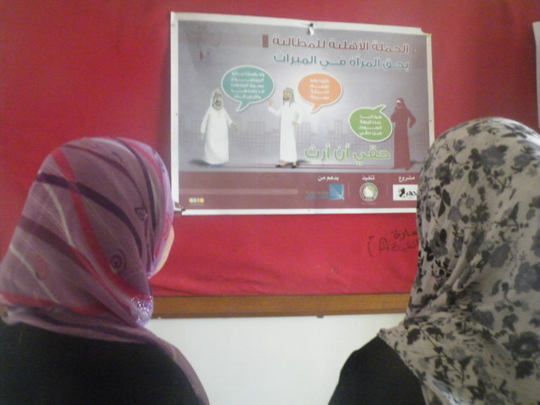
Gaza: In a male-dominated society such as Gaza’s, women’s rights might be violated in various ways, but one of the most common violations is that women do not receive their share of family inheritance.
Gaza is known to be a conservative society where men usually deal with all the financial matters without involving the women despite their equal rights in Sharia and Palestinian law.
Dr Hasan Al Joujo, the head of the higher Sharia court council said: “Islam has given women their rights in inheritance; any manipulation or fraud in the name of the customs, traditions, or treatment is forbidden in Islam.”
According to the Humanitarian and Women Issues Organisation, the denial of rights of women to their inheritance is considered to be one of the harshest forms of violation of their rights women face in Gaza. Nevertheless, in most cases, the women are not aware of what their rights are as far as inheritance is considered.
A study by the Women’s Issues Centre in Gaza City found that 88 Per cent of women in the coastal enclave are denied of their rights to inheritance, while 67 Per cent of them are unwilling to speak out to change the situation.
As an initiative to clarify the women’s financial rights in inheritance, a talkshow programme on radio titled “I have rights to my inheritance” has recently started broadcasting with an aim to explain and encourage women to demand their rights.
The programme is broadcast twice a week giving advice and recommendation to women on how they can deal with their families, society and if necessary, court.
Mahmoud Al Ajrami, the coordinator of this programme, said: “To inform the women of their rights, we interviewed lawyers, Islamic and Christian leaders, and activists concerning women’s rights. Sadly, the women refuse to talk directly on the radio programme.”
The programme records the voices of other women and uses aliases in order to keep them annonymous.
Fidaa Heles, the project coordinator, said: “None of the women who reported to us were physically threatened. They don’t want to speak out loud so that they don’t bring embarrassment to their families when expressing their thoughts.”
The programme’s target group was the women in Shajaea neighbourhood and Beith Hanoun area since there are lots of properties and the women there are less educated.
Mothers and sisters everywhere are afraid to request their inheritance, and would rather prefer not to demand their portion for not losing their children or brothers and having society talk negatively about them.
An example of such a probability is that of S.F., standing in front of a piece of land what was supposed to be her property but was rather taken over by her beloved brothers.
She said: “After the death of my father, my three brothers divided our land among themselves; giving neither me nor my two other sisters a share. By law, I am supposed to have part of this land; yet I am rather expected to keep quiet in case the people think we fought after the death of our father.”
In some families, the brother would either pay an indemnity to his sister either in cash or pay for her pilgrimage which she accepts as a conciliation for the sake of her brother and family union.
Dr Al Joujo added: “The court’s job is to deliver justice to everybody including women. However, in the end, the court deals with paper work and documents and can’t help those who don’t stand up for themselves. We can’t give them their rights unless applied for.”












